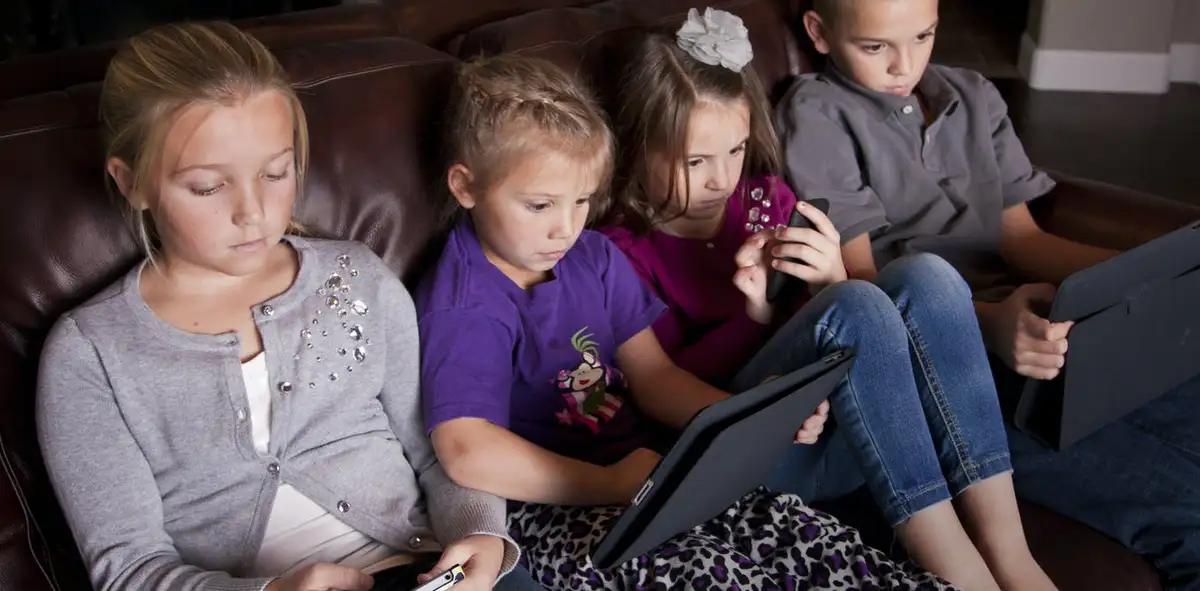Parents' perceptions of what their children and teenagers are doing online are becoming more far from reality. There is little to no internet monitoring for a large number of teens.
- Only 13 percent of teens believe that their parents understand how much and how widely they use the internet.
- Only 32 percent of teens report that their parents have a rule about reporting online activity that makes them feel uncomfortable.
- 60 percent of teens have social media accounts that they haven't told their parents about.
In addition, many teenagers and tweens are regularly utilizing applications that their parents have never tried and may not even comprehend. When it comes to new technology for children, parents can't keep up, particularly if it's something they won't need to use in their everyday life. Many
parents and their children are experiencing difficulties as a result of this digital divide.
Reasons for Concern
When it comes to online connections, whether they take place in front of a computer or on a smartphone, there's a lot of worry for youngsters of any age. Unknown predators lurking in apparently benign places, youngsters who give out too much personal information and end up making themselves discoverable to strangers are just a few of the hazy, faceless threats that parents are well aware of. Children and teenagers' pals are becoming as harmful as strangers, if not more so, according to a growing number of studies. The prevalence of cyberbullying is on the increase. Nearly half of all kids say they've been bullied online, and a quarter say they've been tormented more than once, according to a new survey. Depression, anxiety, loneliness, and even suicidal thoughts may result from cyberbullying for many kids. Additionally, many youths are more likely to take up dangerous activities in order to "fit in" with their peers.
Regulating the Risk
Keeping tabs on everything your kid does online is impossible at all times. It may be tough to maintain tabs on your
child's online activities when you have to contend with hidden social network accounts, applications that have been downloaded without your knowledge, and youngsters who are eager to skirt the rules. It is possible, though, to boost your chances of keeping yourself and the children you love safe.
It's important to have a set of rules when using social media

If you want your adolescents and children to act properly on the internet, you need to set some ground rules for them. As soon as those guidelines are broken, they need to be aware that if they don't comply with your instructions, they will be denied access to the services they rely on. Discussing what to do if they find themselves in an uncomfortable circumstance. In the event that they see that someone is bullying them online, they should inform you immediately.
Defining a set of rules for online behaviour. Your child's punishment should be swift and harsh if you find them bullying someone else.
You may see your child's
social media accounts, phone, and other gadgets at any time under a "open technology" policy. A "monitoring" app or just acquiring your kids' login information is not always sufficient. The majority of youngsters have set up their own accounts and know how to effortlessly conceal applications. Technology-free hours, particularly at night, when sleep deprivation may make it more difficult for your youngster to make sound judgments.
Software for Parental Control
If you want your adolescents and children to act properly on the internet, you need to set some ground rules for them. When it comes to
parental controls for Android and PC's devices, you have a wide range of alternatives. Take use of a trusted mobile
parental control app that allows you to deactivate screenshots, ban Snapchat and Instagram and other restrictions that restrict their exposure. If your adolescent sees or experiences anything online that worries them, remind them that they may come to you. Pornography access by children and teenagers may lead to awkward discussions. Even if teenagers are spending more time at home,
having the ability to limit access will provide an additional degree of security. Getting lost in the world of pornography on the internet is a simple and convenient diversion.
 If you want your adolescents and children to act properly on the internet, you need to set some ground rules for them. As soon as those guidelines are broken, they need to be aware that if they don't comply with your instructions, they will be denied access to the services they rely on. Discussing what to do if they find themselves in an uncomfortable circumstance. In the event that they see that someone is bullying them online, they should inform you immediately.
Defining a set of rules for online behaviour. Your child's punishment should be swift and harsh if you find them bullying someone else.
You may see your child's social media accounts, phone, and other gadgets at any time under a "open technology" policy. A "monitoring" app or just acquiring your kids' login information is not always sufficient. The majority of youngsters have set up their own accounts and know how to effortlessly conceal applications. Technology-free hours, particularly at night, when sleep deprivation may make it more difficult for your youngster to make sound judgments.
If you want your adolescents and children to act properly on the internet, you need to set some ground rules for them. As soon as those guidelines are broken, they need to be aware that if they don't comply with your instructions, they will be denied access to the services they rely on. Discussing what to do if they find themselves in an uncomfortable circumstance. In the event that they see that someone is bullying them online, they should inform you immediately.
Defining a set of rules for online behaviour. Your child's punishment should be swift and harsh if you find them bullying someone else.
You may see your child's social media accounts, phone, and other gadgets at any time under a "open technology" policy. A "monitoring" app or just acquiring your kids' login information is not always sufficient. The majority of youngsters have set up their own accounts and know how to effortlessly conceal applications. Technology-free hours, particularly at night, when sleep deprivation may make it more difficult for your youngster to make sound judgments.

